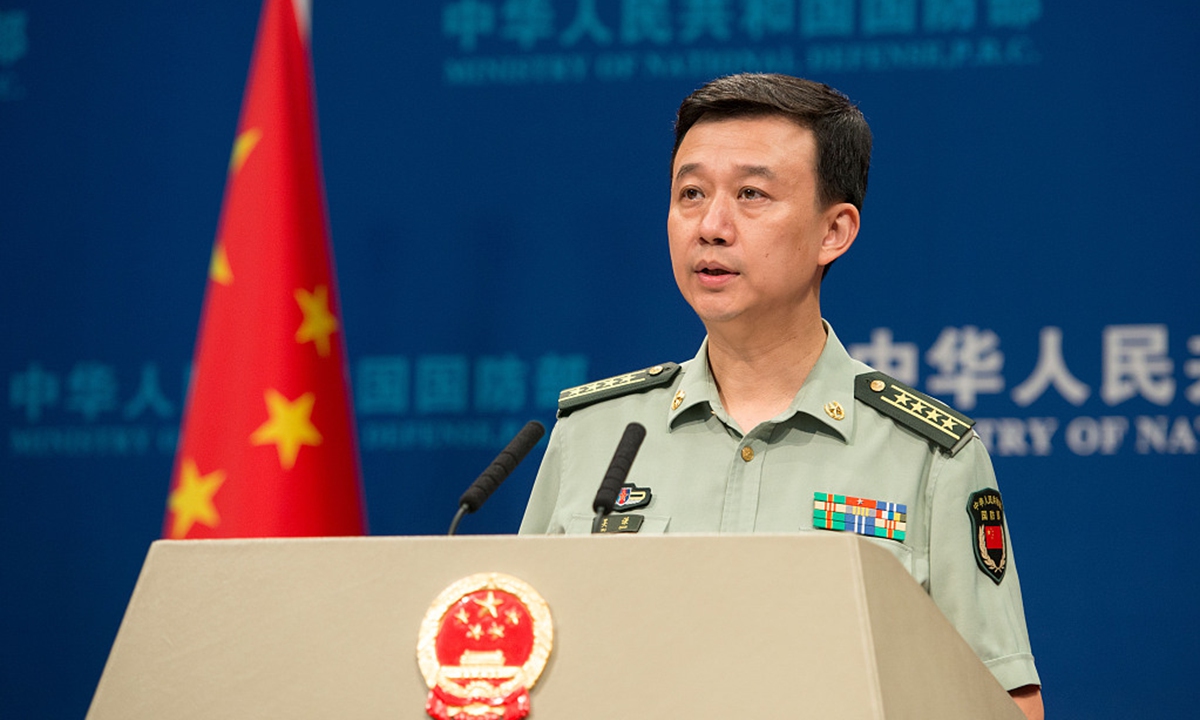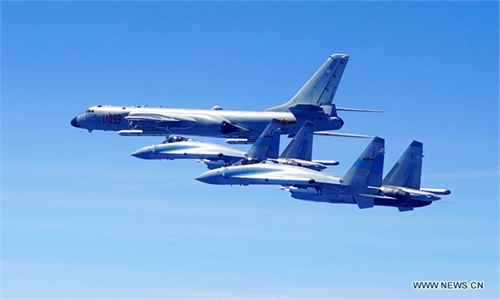China’s defense ministry issues fresh, rare warning ‘action the most powerful language’ over Pelosi’s Taiwan visit; reinforces resolve

Wu Qian. Photo: CFP
Action is the most powerful language, said the Chinese Defense Ministry on Thursday as its spokesperson stressed the sensitivity of the Taiwan question again after China issued six warnings against US House Speaker Nancy Pelosi's potential visit to Taiwan island over the past few days.
The frequency of Chinese warnings and the remarks different departments use fully demonstrate China's determination to take any necessary military measures to counter US provocations and safeguard national sovereignty and territorial integrity, analysts said.
The People's Liberation Army (PLA) will not tolerate any "Taiwan independence" moves or interference from external forces, and will resolutely stop such attempts, Wu Qian, spokesperson for the Defense Ministry, said at Thursday's press briefing.
The root cause of a turbulent Taiwan Straits is the collusion between "Taiwan independence" forces and external interfering forces, Wu said, urging relevant parties to learn to adapt to the new reality (PLA operations near the Straits), to reflect on their own deeds and "most importantly, to pull back from the brink."
Though Wu was responding to a question about PLA operations on the Taiwan Straits, analysts interpreted Wu's words as another stern warning against the US government and some US politicians who are pushing Pelosi's possible visit to Taiwan island.
The US should not underestimate the crisis and possible disastrous results it will bring to the Taiwan Straits if Pelosi ultimately makes the trip, experts said. On edge of the cliff for bilateral relations, if the US does not pull back but keeps challenging the guardrail, the price will be beyond US capabilities to pay.
Meanwhile, the Pentagon sent mixed messages - it first opposed Pelosi's plan but later offered to develop a security plan to make the speaker safe should she visit the island, CNN reported Wednesday.
China has warned the US six times in the past few days over Pelosi's plan via different departments and channels. China's Foreign Ministry on Monday used the phrase "yanzhen yidai" (We are fully prepared for any eventuality) which literally translates into "streamlining army formation to wait for the enemy," and the Defense Ministry said the PLA "will not sit idly by" should Pelosi visit Taiwan. Hu Xijin, a commentator for the Global Times, said that China's recent responses, including the two rare expressions, sent a message that Beijing is determined to frustrate Pelosi's plan to visit Taiwan island.
Hu cited a few precedents where the two phrases were used.
Before the War to Resist US Aggression and Aid Korea (1950-53), then premier Zhou Enlai warned that China will not sit idly by if US troops crossed the 38th parallel.
In 1964, the Chinese government warned the US after the Gulf of Tonkin incident using the same phrase, urging the US to stop marching toward the then Democratic Republic of Vietnam.
The phrase "yanzhen yidai," which the foreign ministry translated to "fully prepared for any eventuality," suggests the preparation is not military mobilization or logistical preparation, but rather having all personnel in place and all ammunition ready for a possible conflict, according to Hu.
Lü Xiang, a research fellow at the Chinese Academy of Social Sciences, told the Global Times "as the status quo has already been broken by the US due to Pelosi's visit, China will actively shape a new status quo."
China will make the best use of the US' mistakes, through comprehensive measures including militarily, eying to fully take control of the Taiwan Straits situation to better promote the reunification process in the future, the expert said.
Should Pelosi visit Taiwan island, possible scenarios include PLA fighter jets intercepting Pelosi's plane and escorting it to the mainland, the PLA declaring air and maritime zones around Taiwan island as restricted zones for military exercises, or conducting large-scale military drills around the island of Taiwan, including in the waters between Taiwan island and Japan as well as between Taiwan island and Guam, according to military experts.

